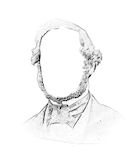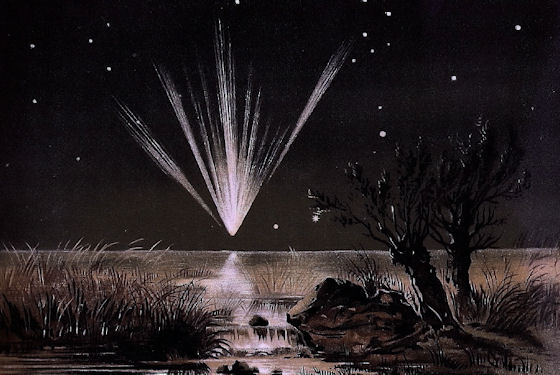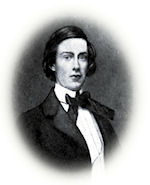June 28.—The steamer Pawnee arrived at the Navy Yard at Washington this morning, bringing the dead body of Capt. James H. Ward, of the steamer Freeborn, who was killed in an engagement yesterday, while attempting to cover a landing at Matthias Point, on the Potomac River.
The Freeborn was off the Point reconnoitring, when Capt. Ward discovered indications of a movement for the erection of a battery at that Point by the rebel soldiers encamped near there. On Wednesday night he sent up to the Pawnee at Acquia creek for Capt. Owens to send him a reinforcement of two boats’ crews to assist in effecting a landing. Two small cutters’ crews were sent down to the Freeborn, under Lieut. Chaplain, and with them a boat’s crew from the Freeborn, numbering from thirty to forty men in all. Lieut. Chaplain the next morning effected a landing, and succeeded in driving in the rebel pickets. Finding preparations for the erection of a rebel battery there, it was determined to throw up breastworks and mount guns thereon to give the enemy a warm reception should they attack the crews. Accordingly the men were set to work, under cover of the Freeborn’s guns, at throwing up a sandbag breastwork, and succeeded in working four hours and a half, and got their works completed about five in the evening. They then went to the boats to go on board for guns to mount on the work, when, just as they were embarking, they were surprised by the rebels, estimated at from one thousand to fifteen hundred strong, who poured in a heavy and continuous fire of musketry upon them from the bashes near by. Under cover of the guns of the Freeborn the crews precipitately made for the steamer, leaving a few of the men on shore, the guns of the Freeborn meanwhile opening with activity and precision apparently upon the enemy, who were concealed by the underbrush. Some ten shell were thrown among them, with what effect could not be seen, owing to their position.
Captain Ward behaved with great coolness, standing by the guns and directing the fire. When his gunner received a wound in the thigh, which disabled him, he immediately took his place, and was sighting the gun when he received a Minie musket ball, which killed him almost instantly.
The men left on the shore by the boats in their retreat swam out to the Freeborn—one of the men carrying on his back a wounded comrade named Bess, who had four musket balls shot into him. John Williams, coxswain of the third cutter, received a flesh wound in the leg while waving the Stars and Stripes, which he carried in his hand the whole time, behaving most gallantly under the hottest fire. The American ensign, which he never ceased to wave, was pierced with nineteen musket balls. Only three men of the boats were wounded, and the only life lost was that of the gallant Ward, who, the moment the enemy was discovered, blew the signal for the crews to come aboard, and instantly opened on the foe with his heavy guns.
While the crews were engaged on the breastworks, a slave, belonging to Dr. Hooe, approached the shore with a white flag on a pole, and getting aboard the Freeborn, informed Capt. Ward that the enemy were in the underbrush near by, one thousand strong. Still the work was continued, and made ready, as the event turned, for the rebels to occupy with guns.—(Doc. 55.)
—A Georgia Regiment arrived in Richmond, Va., without arms, the Governor of Georgia refusing to allow more arms to be taken from the State.—Richmond Examiner, June 29.
—Eight companies of rebel infantry and cavalry went from Knoxville, Tenn., to Cumberland and Wheeler’s Gap, to guard those places and prevent the federal troops from passing through Kentucky to the aid of the Union men in East Tennessee. They were encountered by the Union men in the mountains. —Louisville Journal, July 2.
—The Thirtieth Regiment N. Y. S. V. from Albany, under the command of Colonel Edward Frisbie; the Thirty-second N. Y. S. V., under the command of Colonel Matheson, and Colonel E. D. Baker’s California Regiment, left New York for the seat of war.—The latter for Fortress Monroe.—(Doc. 50.)
—The Charleston (S. C.) Courier, of to-day, prints the following from a private letter received from Manassas Junction:
“Our force is less than has been supposed. Two days ago it consisted of only about 7,000, and so also are all our forces at other points smaller than is supposed. Johnson, when he evacuated Harper’s Ferry, had not more than 7,000 effective men. Two thousand joined him about that time, and in one way and another, he has now a force of about 10,000 men. It was a military necessity, and he is the man to make the most of it. These facts account for the retreating and apparent indisposition to meet the foe. Their invasion of Virginia, and our inability to repel them, have been the result of the strange notion that we are engaged in a five years’ war, and of the consequent policy of rejecting, six weeks ago, at Montgomery, over 100,000 troops offered for twelve months. The scheme of requiring them for three years or the war, has produced great delay in the organization of the Southern army, and we are still very deficient, although now there is a willingness to accept on terms previously rejected. Our reliance, at present, is solely in the superior morale and desperate valor of our soldiers, and in the ability and judgment of our generals. Our cause has been greatly impeded and imperilled by this idea of a five years’ war, which nothing but the effect of this backwardness can produce.”
—Petitions for compromise, addressed to the President of the United States, which had been secretly circulated throughout the city of New York, were seized at the office of Frederick A. Guion. Mr. Guion issued an earnest remonstrance against the seizure.—(Doc. 51.)
—Colonels Magruder and Hardee were appointed Brigadier-Generals in the Confederate army.—The Nashville (Tenn.) City Council appropriated $750,000 for a residence for the President of the Southern Confederacy, as an inducement to remove the capital there.—The State Treasurer of Georgia gave notice that on account of the war with the Anti-Slavery States, the interest on the coupons and bonds of that State payable in New York, must be redeemed at Savannah.—An advertisement announces the reopening of the Confederate loan at several places in Georgia. It says that only $11,000,000 of the $15,000,000 have been subscribed for.—Nashville Union, June 28.
—General Banks at Fort McHenry issued a proclamation nullifying the protest and acts of the late police board of Baltimore.—(Doc. 52.)
—The Twenty-second Regiment N. Y. S. V., left Albany, N. Y., for the seat of war. The regiment is commanded by Colonel Walter Phelps, and is composed of men from the counties of Warren, Essex, Washington, and Saratoga. They belong to the class of hardy and industrious woodsmen, and intelligently understand the questions which underlie the present contest.—N. Y. Tribune, June 80.
—The First Regiment of New Jersey Volunteers left Trenton this morning for Washington in twenty-one cars, at 8 o’clock.—The Second and Third Regiments left this afternoon by way of the Camden and Amboy Railroad. The tents and other equipage —which Quartermaster-General Perine had, under the direction of Governor Olden, and at the request of the War Department, supplied them, went with each regiment.—N. Y. World, June 29.
![]()











